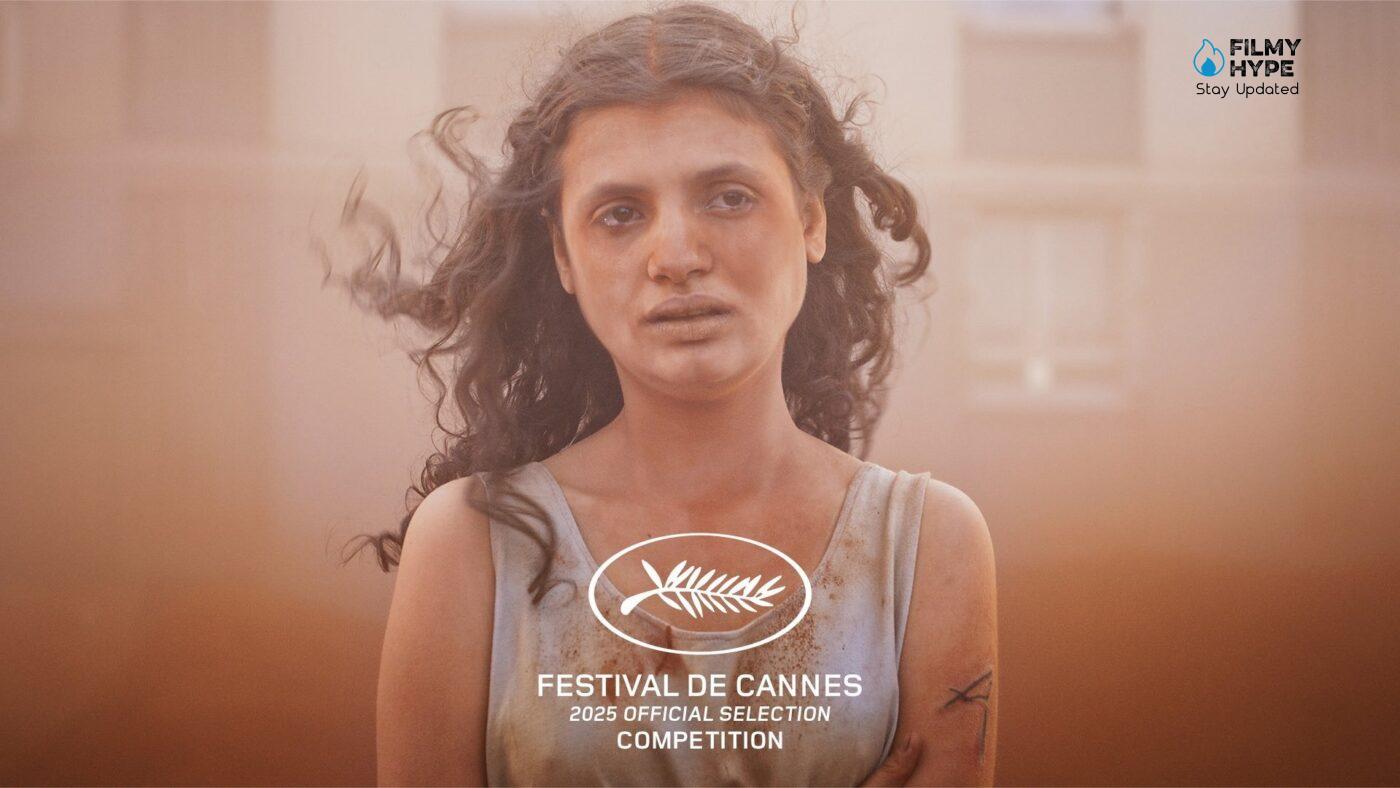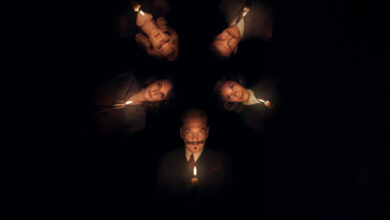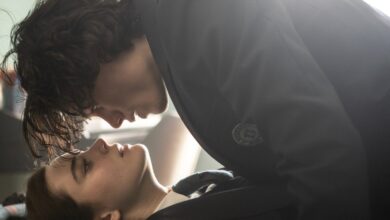Alpha Movie Review (Cannes 2025): Mourning, Blood and Sand in Julia Ducournau’s New Nightmare?
A lot of smoke, but not roasted enough. Alpha Movie by Julia Ducournau could be summarized as follows. The director of Raw is Titane this time disappoints and not a little, packaging for the official competition of Cannes 2025, an atypical mix of family drama, fantasy, with very strong links to the Pandemic from COVID-19 and the theme of exclusion. The first part is intriguing, very powerful, the second is bland and repetitive. Too bad, especially for a first-rate chaste used so badly. With Raw and Titane, Julia Ducournau had imposed a radical look, made of flesh and blood. Cinema that pulsates, that writhes, that is not afraid to disturb. With Alpha, in competition at Cannes 2025, the French director signs a work that, at least on paper, seems to want to change pace: less provocative, more intimate, even melancholy. But it is precisely in this attempt at evolution that a deep crack is felt, which arises from writing and spreads to the very heart of the film.

Set in the early 80s, Le Havre, Alpha features a thirteen-year-old girl, Mélissa Boros, intense and hypnotic, who returns home after a party with a clandestine tattoo done by a friend. An innocent gesture of adolescent rebellion, which, however, triggers panic in the mother. Because it spreads in the city a mysterious epidemic, which closely resembles AIDS, and which is transmitted through the blood. An infection that does not kill, but changes: it slowly transforms the human body into a white and hard substance, similar to marble. ln an atmosphere of fear and suspicion, that mark on the skin becomes a threat, a possible trigger. And the fear of the body–of one’s own, of that of the others–becomes a story.
Alpha Movie Review: The Story Plot
For the 13-year-old Berber-born Alpha (Mélanie Boros), who lives in Le Havre with her mother Maman (Golshifteh Farahani) on the outskirts of the city, life is far from roses and flowers. He never met his father; he studied in one of the most decrepit and poor high schools in the city, among his classmates, bullying, drug addiction, and lack of prospects were already a concrete reality. As if that were not enough, Uncle Amin (Tahar Rahim), a drug addict with no prospects for recovery, has also come to live at home. But even this is not the real problem. For some time, a terrible virus has been mowing the country, a virus that soon begins to change people, transforming their skin and internal organs into marble. Alpha‘s mother works as a nurse in the now overcrowded hospital, and when one day the risk of Alpha being infected with the disease arises, for that small and desperate family triangle, a period as dramatic as it reveals their frailties and fears will begin. Meanwhile, the wind blows in Le Havre, and the fear of the disease leads Alpha to be increasingly marginalized in the classroom.
Alpha is the third feature film by Julia Ducournau, a French director who has earned a prominent place in the international scenario for her ability to combine horror, often with Gothic shades, female narration and the desire to season everything with tributes to greats of the seventh art such as Lynch, Cronenberg, Hitchcock, in a mix of genre that knows no filters and barriers whatsoever. There is no denying that Alpha present a somewhat original starting point, that is, the idea of a disease that transfigures people making them real statues, as if they had been affected by the gaze of Medusa, with which to bring to the surface the times of the Pandemic from Covid 19 with all its consequences. However, it is also clear that he wanted to connect to the times of AIDS, of the heroine who overwhelmed the suburbs and Banlieu, to the marginalization of minorities, which is still a really serious problem in France today. All at the service of a familiar drama that is supported by three main performers truly in a state of grace, who, however, are missing from half the film onwards, an evolution of events that has something more than the obsessively shouted to exhaustion.
Alpha Movie Review and Analysis
Alpha aesthetically, it is a film with a lot to say and give. Ducournau knows how to always make us feel inside a room, a corridor, alongside a varied humanity, in which the different generations of the migratory phenomenon are represented. Ruben Impens’ photography is the element that most of all allows the film to have an urban soul, minimal, realistic, with cold tones that dominate an environment in which it is almost always night, when it is day, it does not change much. The problem is that this makes the film a B-movie, however remarkable, visually. Ducournau relies on the cast, on an always vibrant and credible Golshifteh Farahani, the fantastic actress who knows how to make her mother/sister a symbol of determination, altruism, but also of suffering. A suffering that comes first of all from him, from a crazy Tahar Rahim. His Amin is one of the most poignant and realistic drug addicts who has ever been seen each other. It is the real engine of a film that, however, from half onwards begins to go round and round, tears in some poorly orchestrated, rhetorical narrative solutions, typical of those who do not have clear ideas about the balance necessary for their creature.
Also good is the very young Mélissa Boros, a credible, realistic teenager, who dominates every shot of a film that if the theme of the disease takes it and then leaves it, that of drug addiction and cultural identity uses them in the same way, but that of the bullying and exclusion generated by the fear of the different at least manages it well. The problem with Alpha is that Ducournau, to a certain seems almost not to know what to do to its characters again, it is lost in flashback, flashforward, its joining dream and reality without an adequate filter, repeats the same scene over and over again, not always directing it with the right realism. Which is a paradox in such a film, but the excess of lyricism is its notorious flaw, as well as the desire to always amaze, even when simplicity, immediacy would be enough to achieve the result. International criticism for now very severe, yet another fall in the Cannes Film Festival, which this year is costing dear to many sacred monsters and some new signatures to which perhaps we had given too much confidence. Alpha deserves a vision, but it is obvious that we expect much, much more from Julia Ducournau.
However, it is in the narrative structure that the film reveals its frailties. Writing – although full of suggestions – is not very solid, often elliptical, but arbitrary. At first, everything seems to revolve around the thirteen-year-old played by Mélissa Boros, who brings a restless and vulnerable adolescence to the screen. But soon the film shifts its center of gravity. The true emotional weight of the story shifts to the mother, played by an extraordinary Golshifteh Farahani, and to her brother, the uncle of the girl played by Tahar Rahim. Two adult figures crushed by submerged trauma, by unresolved family ties, by fear that has deep roots. This shift in perspective, if on the one hand enriches the film with complex emotional levels, on the other, compromises its consistency. The point of view fragments, disperses, and the viewer struggles to find a center to hold on to. The narration alternates moments of great intensity with more opaque passages, often leaving the sensation of a writing not finished. The characters are full of potential, but not always developed convincingly. And so, while the shape remains fascinating, the content tends to fray, losing strength.
Alpha is a work that confirms the originality of Julia Ducournau’s gaze, capable, like a few others, of exploring the body and its transformations with a visual style that leaves its mark. The beginning of the film is dazzling: the director builds a dense, visceral atmosphere in which the tension is constant and every detail seems to vibrate with hidden meanings. The first half keeps the viewer nailed to the armchair, wrapped in a sense of restlessness that pulsates under the skin. But it is precisely when the narration should be composed in a clearer design that Alpha stumbles. The second part, instead of amplifying the power of the visual and thematic system, disperses in abandoned subplots, in alienating changes of perspective, in a writing that accumulates suggestions without dissolving them. The result is a fascinating but unsolved film: capable of electrocuting with images, but less with the story. And in the end, what were to be stimulating ambiguities are transformed into suspended questions, which risk compromising the overall strength of the work.
The relationship between Alpha (Mélissa Boros), the medical mother (Golshifteh Farahani), and Uncle Amin (Tahar Rahim) is the true beating heart of the film. Amin’s sudden return after years of absence (in conjunction with Alpha‘s” getting sick”) sinks the family into an unstable and violent present, made of overdoses, collapses, and flashbacks that seem to emerge as repressed nightmares. The mother, crushed by guilt, lives anchored to the past, between the hospital and the screams, unable to get rid of the weight of her brother. Alpha, on the other hand, observes, absorbs, and suffers. She is too young to be a heroine, but is charged with the task of surviving a pain that she has not chosen. Its coming-of-age is a path in the dark, dotted with blood, sand and very heavy silences.
If Alpha is very powerful in his imagination, it is much less powerful in narrative coherence. Ducournau alternates school scenes (including an incredible game of bloody volleyball and a nightmare pool accident) with dreamlike visions, blurred flashbacks, psychedelic montages. Temporal boundaries dissolve, and suggestions multiply without finding a true synthesis. The trauma is represented through logical jumps, layered symbols (which would seem to have much to do with the Berber origins of Alpha‘s family) and narrative lines that seem to belong to different films. It is a deliberate but also risky stylistic choice: the sense becomes vague, and emotional involvement is lost in the most cryptic passages. Visually, however, Ducournau is in a state of grace. The film is a riot of images that remain impressive: bodies that flake off in sand, school scenes filtered by acid lights, hospital rooms that look like infernal caves, a final urban storm that is pure visual catharsis. The collaboration with Ruben Impens on photography and with Emmanuelle Duplay on scenography is impeccable: space becomes more and more overwhelming, light tells the emotionality of people more than they say. Even the soundtrack, at times (too much) deafening, contributes to creating a disturbing atmosphere that reflects the inner noise of the characters.
The link between Alpha and Uncle Amin is the most enigmatic and suggestive. One senses that what we see could be the fruit of the girl’s mind (as it is of that of the mother): memories, visions, ghosts. In an extraordinary scene, the two “lose” in a musical spiral on the notes of Nick Cave’s “The Mercy Seat”, a journey into pain and memory that has something hypnotic and deeply disturbing. Amin is the face of that evil that cannot be done without loving, of the dependence that corrupts but seduces, of the man who has been and is no longer. Alpha chases him, remembers him, projects him. But his figure remains elusive, like a “dream inside a dream” (poem of Edgar Allan Poe who is directly mentioned, and seems to want to act as a reading key to the entire film). Alpha also talks about identity and roots. The family origins, the migrant past of the grandmother, the mother’s inability to separate herself from her wounds, and the traditions of her people of origin: all this settles on Alpha like an invisible dust, difficult to wash away. The film suggests that certain diseases are not taken, absorbed, and inherited: they are called guilt, silence, and loss. And when they arrive, they change us forever. In this sense, Alpha is a film about the weight of inheritance, about the difficulty of being free when growing in the pain of others.
Alpha Movie Review: The Last Words
Alpha is a dense, excessive, deeply personal work. Julia Ducournau confirms her visual talent and obsession with inner bodies and wounds, but stumbles on an overloaded and often confusing narrative. The film is about mourning, identity, addiction, and adolescence, mixing symbolism, body horror, and family drama. To keep it together is an extraordinary cast and an aesthetic that enchants and destabilizes. But beauty alone is not enough. With Alpha, Julia Ducournau signs a work that is visually powerful and thematically consistent with her poetics, but narratively discontinuous. A film that begins with great intensity, and then gets lost in a fragmented and not very cohesive writing. Charming, but unsolved.
Cast: Mélissa Boros, Tahar Rahim, Golshifteh Farahani, Emma Mackey, Finnegan Oldfield, Louai El Amrousy
Director: Julia Ducournau
Where to Watch: Cannes Film Festival 2025
Filmyhype.com Ratings: 3.5/5 (three and a half stars)






